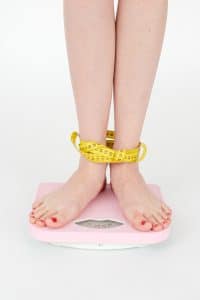 At one time or another, everyone has hit a wall and not progressed toward a goal, even though they worked hard. It happens with fitness, especially if you’re trying to lose weight. You may have worked out like crazy and stayed loyal to a healthy diet, but you still hit a weight loss plateau or even gained a pound or two. Instead of giving up, identify the problem and solve it. Plateauing often occurs when you’re losing weight. The less you weigh, the fewer calories you need.
At one time or another, everyone has hit a wall and not progressed toward a goal, even though they worked hard. It happens with fitness, especially if you’re trying to lose weight. You may have worked out like crazy and stayed loyal to a healthy diet, but you still hit a weight loss plateau or even gained a pound or two. Instead of giving up, identify the problem and solve it. Plateauing often occurs when you’re losing weight. The less you weigh, the fewer calories you need.
You may not be losing weight but inches.
Weight loss plateauing isn’t necessarily as bad as it sounds. You may be gaining muscle tissue. Muscle tissue weighs more than fat tissue does per cubic inch. As you convert fat to muscle, you may lose inches but not weight. If you compare a container containing a pound of feathers with one containing a pound of iron, the one containing the feathers will be bigger. The same is true if you compare your body with a high fat composition to your body with a higher muscle content but also at the same weight. You’ll look thinner the more muscle you have.
Losing weight isn’t consistent.
If you’re expecting exact results each week, you’ll be disappointed. One week, you may lose four pounds, but the next, you won’t lose any weight. It may be from water retention or other anomalies. That doesn’t mean you shouldn’t look at other factors. As you lose weight, your calorie requirement also diminishes. It takes fewer calories to maintain weight, so you have to adjust your diet or increase your effort during your workout.
Plateauing can occur if you don’t change your workout regularly.
When you first start an exercise, your muscles have to work harder. As it becomes more familiar with each movement, muscles become more efficient, and your body burns fewer calories. It makes sense if you’re foraging for survival but not if you have food readily available. The efficiency can interfere with weight loss or even cause weight gain. Change your workout or increase repetitions, sets, or intensity to offset that efficiency.
- If you aren’t losing weight, maybe you’re unaware of the extra calories you consume by grabbing a handful of candy or having a soft drink. Keep a food diary and write down everything you consume, even if it’s just a bite of something.
- Your workout program may be too limited. If you’re just doing aerobics, your body burns both fat and muscle tissue for energy. Muscle tissue requires more calories to maintain and boosts your metabolism. Add all types of exercise, especially strength-building.
- You might be overexercising. If you’re always tired or don’t have the strength you had before, your body may need a rest. Rest your body for 48 to 72 hours between strength training sessions to allow muscles to heal.
- Are you hydrating enough or getting enough sleep? If you’re retaining water, hydrating more can help. Lack of sleep slows you down and causes your body to produce more hunger hormones and fewer satiety hormones.
For more information, contact us today at Iron Fit San Antonio
